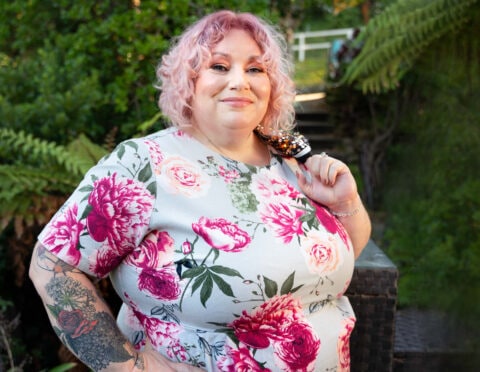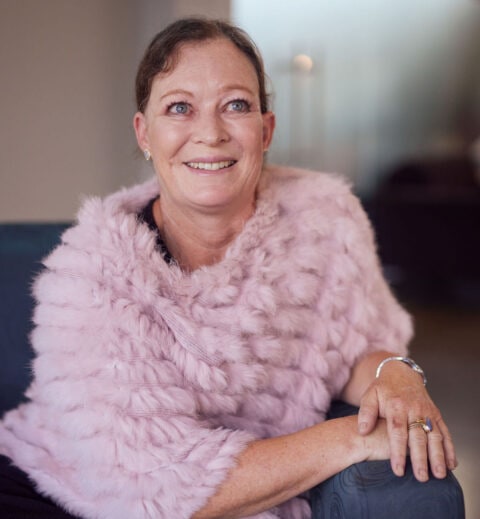Many women struggle to orgasm. But as Sharon Stephenson discovers, it can take diving deep into our past to get to The Big O.
Thursday evening in late November, just before spring hands the baton to summer. It’s been one of those weeks: I’m tired, wired and all I want to do is slump in front of the telly, watching Graham Norton fling people out of his big red chair.
Instead, I’m firing up Zoom for a two-hour orgasm workshop.
Thirteen of us have logged on for The Big O Workshop with Rapid Transformational Therapist (RTT) Lorraine Maguire. We’re a mixed bunch, ranging in age from 25-60 and dotted around Aotearoa and Australia: there’s a graphic designer, a lawyer, a hairdresser and me, a journalist here because my editor made me.
But I’m still intrigued because who among us doesn’t want a better, more fulfilling sex life?To be honest, I’m a little nervous because I’d worried it would be a Gwyneth Paltrow/Goop type situation – all jade eggs, women with unnaturally white teeth and lessons on how to steam our lady parts. But there’s no woo-woo, just the kind of advice you wish you’d been taught at high school. And a whole lot of lightbulb moments.
“Think of it as a girly chat with mates,” says Lorraine, who trained in RTT, which focuses on the mind’s ability to control our actions, in London five years ago.
“Orgasms are a normal, healthy part of life and we should be able to talk about them without fear or shame.
”She’s right, of course. But society doesn’t necessarily agree: talking about your sex life to your girlfriends with anything but the vaguest reference, even after a few wines, is still frowned upon.
“It’s seen as a bit naughty and shameful, the kind of thing you don’t do in polite company,” says Lorraine, her face furrowing into an I-don’t- understand-it expression.
Her point – and admittedly it’s a cracker – is that the clitoris is the only organ in the human body that has no purpose other than pleasure.
“Women were created with a clitoris which exists solely for pleasure, so how wrong can it be?”
We kick off with introductions and our reasons for being here. Laura*, a 30-something woman, is Zooming from her car because she doesn’t want her flatmates to know about her struggle to orgasm since she realised she was attracted to women a few years ago. Her admission that she gets sex toys delivered to a friend’s house rather than risk her roommates seeing them, raises a few knowing laughs.
Another woman is trying to reconnect with her husband after an affair, while others want to unblock the shame bestowed by religious upbringings and societal conditioning. In a brutal show of honesty, which sets the tone for the evening, a single 40-year-old woman admits she simply wants to learn how to get on the self-pleasure bandwagon.
“How can I receive pleasure if I don’t know what I like?” she asks.
It’s not unusual for women of my age to joke that we learned about sex from reading Jackie Collins and Cleo magazine’s sealed section; nuns’ teeth were gnashed whenever the subject arose at my Catholic college and Google didn’t yet exist to fill in the considerable gaps in our knowledge.
So we literally fumbled our way around back seats and single beds, trying to emulate what we saw on TV, realising little beyond what to put where and when. Like so many women the world over, I’ve never really had a chance to talk about the hows and whys of orgasms and their impact on everything from slowing down ageing (research suggests that women who climax more often have a tendency to live slightly longer) to keeping us healthy (regular sex has been shown to boost the immune system by raising levels of a germ-fighting substance called immunoglobulin A).
And then there’s the pain-fighting benefits. “When you orgasm it releases hormones that reduce pain by triggering a surge of endorphins and oxytocin,” says Lorraine.
We discuss different types of orgasm, from clitoral (the easiest) to G-spot and penetrative, which studies show only 18% of women achieve. “It’s a bit of a design fault because the clitoris is so far away it doesn’t always get stimulated,” says Lorraine. “This is the most difficult way to achieve orgasm.
”No matter which orgasm your heart desires, all of them start in the brain. “The body does what the brain tells it. So if your brain is saying, ‘I can’t orgasm, sex is dirty or bad’ or, as one client told me, ‘God doesn’t want me to have sex’, then your body will respond accordingly. The mind is also hardwired to move you towards pleasure and away from pain, so if you’ve previously had pleasurable sex then your mind will motivate you to have more sex but if sex has been linked with physical or emotional pain then your mind will find ways to move you away from having sex.”
Like Sarah*, who tells us she couldn’t insert a tampon, let alone have penetrative sex, because her vagina would clamp shut. “Through RTT I learned that I hurt my vagina while riding a horse when I was five so my mind associated that trauma with my vagina,” says Sarah.
After taking to Lorraine she had a breakthrough that would have cost her hundreds of dollars and possibly as many hours on a psychologist’s couch. “I was able to realise my sexuality is beautiful and to relax the muscles in my vagina so I could use a tampon and reach orgasm.”
We bat around ideas about changing our beliefs and thoughts, of healing past trauma by focusing on issues such as a lack of desire, worry about how we look naked and feeling awkward asking our partners for what we want.
“It’s about working out what’s right for you and your own orgasm because it’s not your partner’s job to make you climax, it’s about finding out what you like and what gets you in the mood. That, of course, all leads back to the mind, to the way you talk to yourself and the words you use. Because words like ‘I can’t’ or ‘there’s something wrong with me’ are huge blocks to feeling sexy and powerful and experiencing amazing orgasms.”
If ever there was a woman who’s been there, done that and has the t-shirt to prove it, it’s Lorraine. The 44-year-old has taken every ride on the sexual roller-coaster, from being too shy to kiss a boy to being cruelly awarded the “sleaziest girl” prize at high school.
“I had warts on my hands as a child so no-one wanted to hold my hand which stripped me of confidence for a long time,” she tells us. “When I was 16, I discovered alcohol which magically gave me the confidence to have sex with boys. I went from being too afraid to say yes to too afraid to say no.”
In her 30s, Lorraine’s weight spiralled in what subsequent years of RTT have taught her was a subconscious attempt to keep men away. She was single for most of her adult life (“I didn’t feel slim enough or pretty enough”) but while dismantling the scaffolding of her drinking and weight gain (she eventually dropped 22 kilos), Lorraine stumbled across a YouTube video about RTT. The therapy, which borrows from hypnotherapy, psychotherapy, neurolinguistic programming, cognitive behavioural therapy and neuroscience, proved to be her North Star.
Shortly after that late-night tootle around Google, Lorraine flew to London to qualify as an accredited therapist and hypnotherapist.
For the last four and a bit years she’s worked from her Henderson home with clients across the globe, using the power of the internet and the mind to heal weight, anxiety and self-esteem issues as well as relationship and sexual blocks.
“Many clients come to me about another issue but during a session, sexual trauma such as abuse or rape will come up. It’s far more common than you think and can lead to feelings of guilt, shame and remorse. That can create the belief that sex is unsafe or that things will be done to you against your will which, in turn, can lead to women shutting down and never having sex again.”
Three years ago, Lorraine found love with consultant Julian Currer-Briggs who deserves a hat-tip for giving his partner permission to talk about their very active sex life in her workshops.
“I’ve been able to work on my sexual issues and learn and grow with Julian. In 2019 I realised that if I could heal myself then I could possibly do the same for other women. And help them achieve amazing orgasms.”
It’s time for a quick break before Lorraine leads us into hypnosis. The 20 minute session is about taking us back to the root cause of our issues, be they conservative Catholic nuns or sexual trauma.
As my eyelids grow heavy and Lorraine’s chocolatey-smooth voice drifts out of my laptop, she talks about clearing blocks and changing the way we talk to ourselves.
By the time she’s repeating the mantra “I am calm, I am safe”, I feel so cocooned in a bubble of loveliness I could easily fall asleep.
Our homework is to listen to a recording of the hypnosis every day for the next 30 days and lean into our sexual practices.
“As with anything in life, practice makes perfect. My aim is to help you to be free of your past issues, to ask for what you need and, ultimately, to have a wonderful sex life.”
*Names changed by request
Lorraine Macguire’s tips for achieving orgasm
- Know, accept and believe that pleasure is normal – your body is designed for pleasure. It’s not wrong, dirty or bad.
- Our experience of sex starts in the brain. Review your thoughts and attitudes towards sex. Do they hold you back from orgasm? Are your thoughts relevant, healthy and what you actually want to believe?
- Learn what you like and what brings you pleasure, what feels good and what doesn’t.
- Communicate what you like to your sexual partner and have fun with it. It doesn’t have to be so serious. Relax and let go.
- Know it’s okay to seek help if you have blocks, thoughts or attitudes you can’t seem to shift.








